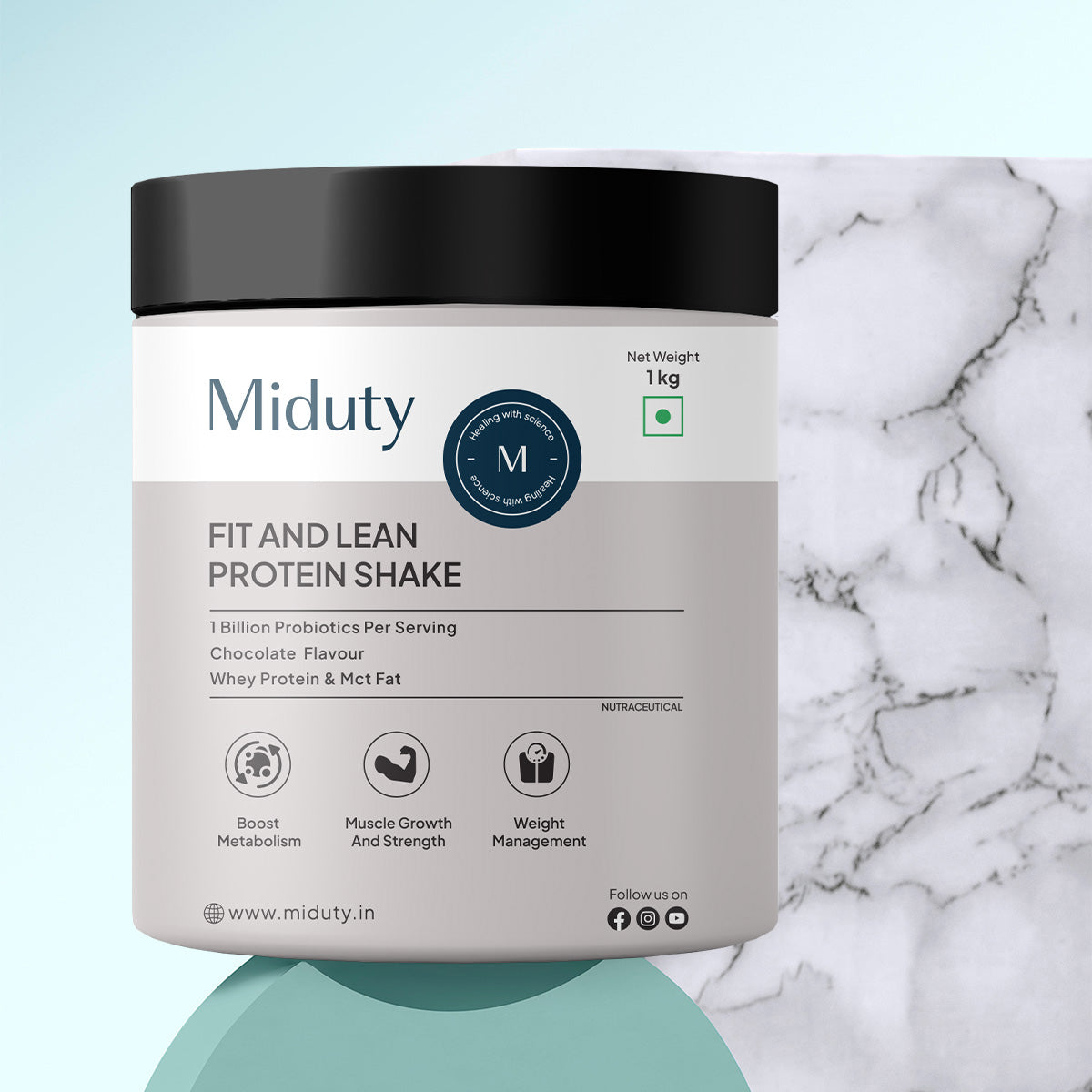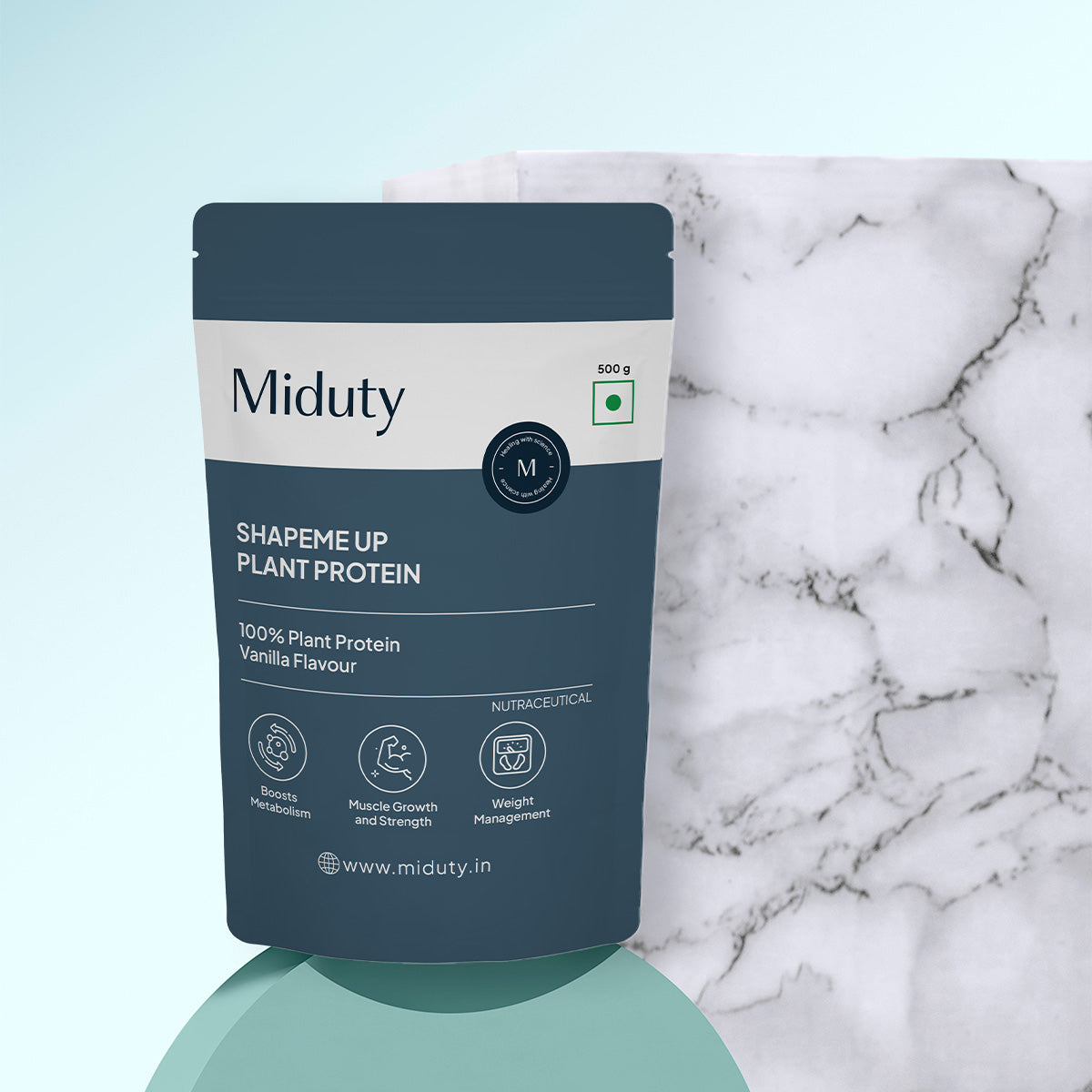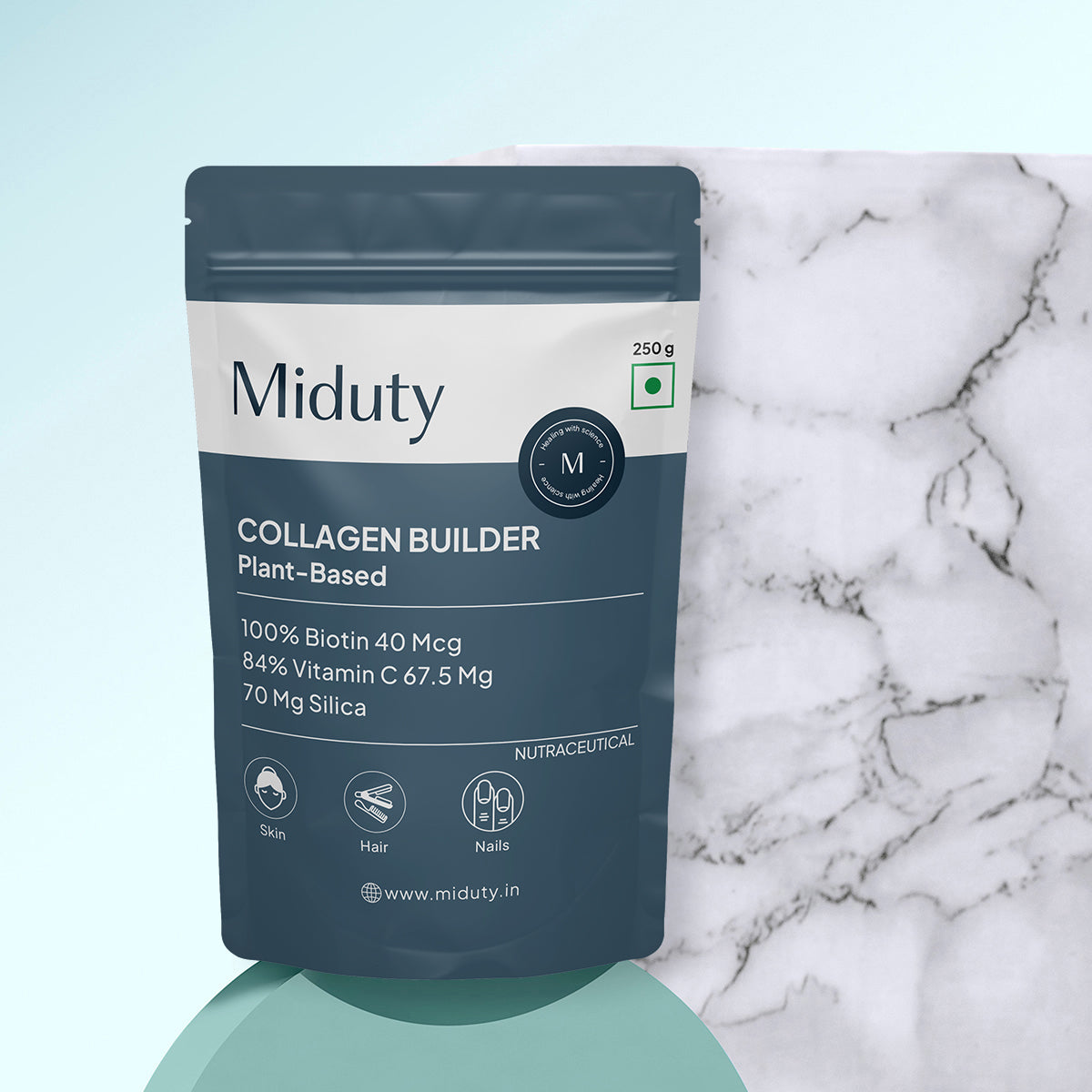
Heavy Metals in Protein Powders – What You Must Know
You're standing in the supplement aisle or scrolling through a fitness website, browsing tubs of protein powder promising "pure muscle gain,""clean plant power," or "30 grams of protein per scoop." The packaging shines with health claims, and you feel great about adding that scoop to your smoothie.
But what if that same scoop hides something you never signed up for — invisible, toxic contaminants that slowly build up in your body over time?
It might sound dramatic, but multiple studies and consumer tests have revealed that many protein powders including those labeled organic or plant-based — contain heavy metals like lead, cadmium, arsenic, and mercury. These metals can quietly accumulate in your body, potentially leading to long-term health issues.
If you're someone who uses protein powder regularly, to build muscle, recover from workouts, or simply boost your daily intake this is an issue worth your attention. Let's unpack what's really happening behind the glossy labels and how you can protect yourself.
Key Takeaways
1. Your "healthy" protein powder might not be as clean as you think. Many popular protein powders — including organic and plant-based varieties — have been found to contain toxic heavy metals such as lead, cadmium, arsenic, and mercury that can accumulate in the body over time.
2. Plant-based and chocolate-flavored powders carry higher risk. Powders made from plants like peas, rice, soy, or hemp absorb metals from contaminated soil, while cocoa used in chocolate flavors often contains naturally high levels of cadmium and lead.
3. Heavy metals can silently damage your health. Chronic exposure, even at low levels, may harm the brain, kidneys, bones, and nervous system — leading to long-term problems like fatigue, high blood pressure, and increased cancer risk.
4. The Indian market shows worrying levels of mis-labelling and contamination. In one study of 36 popular protein supplements in India, nearly 70% were found to be mislabelled regarding the protein content and many also showed heavy metal contamination such as lead and arsenic. [1]
5. You can protect yourself with smart choices. Choose brands that share third-party test results, favour whey or egg proteins if suitable, limit chocolate flavours, diversify your protein sources, and use powders as supplements—not meal replacements.
What Are Heavy Metals?
Heavy metals are naturally occurring elements found in the Earth's crust. Some of them, like iron, zinc, and copper, are essential for the human body in trace amounts. Others — including lead, cadmium, arsenic, and mercury — are toxic even at very low concentrations.
These metals can enter the food chain through contaminated soil, water, and air. When humans consume them through food or supplements, they don't just disappear. Heavy metals tend to accumulate in tissues and organs, where they can interfere with normal biological functions, sometimes leading to serious health problems over time.
In short, the body has no real use for these toxic heavy metals — and once they're in, they're hard to get out.
How Do Heavy Metals End Up in Protein Powders?
You might wonder: How can something that's supposed to be healthy contain toxic metals? The answer lies in the production chain — from the soil where ingredients are grown to the equipment used during processing.
1. Contaminated Soil and Crops
Many protein powders, especially plant-based ones, are made from sources like peas, rice, soy, or hemp. These plants naturally absorb minerals — and heavy metals — from the soil as they grow. If that soil is polluted (due to industrial waste, pesticides, or fertilizers), the plants absorb those toxins, which then make their way into your protein powder.
2. Manufacturing and Processing Contamination
Even if the raw materials are clean, contamination can occur during manufacturing. Metals can leach from processing equipment, water sources, or packaging materials.
3. Lack of Strict Regulation
Unlike pharmaceuticals, dietary supplements (including protein powders) often don't go through rigorous pre-market safety testing. Many countries have limited regulations on heavy metal content in supplements, allowing contamination to go undetected unless brands voluntarily test their products.
4. Cocoa and Flavor Additives
Interestingly, chocolate-flavored protein powders often contain higher levels of heavy metals, particularly cadmium, because cocoa naturally accumulates metals from the soil. That delicious chocolate shake might not be as harmless as it seems.
Heavy Metals in Protein Powders: What Research Shows
Over the past few years, consumer groups and independent labs have repeatedly tested protein powders for toxins and the findings have raised red flags.
- Plant-based protein powders (such as pea, soy, or rice protein) consistently show higher levels of lead and cadmium compared to whey-based powders.
- Chocolate-flavored versions often contain significantly more cadmium than vanilla or unflavored types.
- Organic or "natural" labels don't necessarily mean safer; sometimes they even test higher because they come from untreated, mineral-rich soils.
- A major investigation found that many popular protein powders exceeded safety thresholds for lead and cadmium exposure, especially when consumed daily over time.
In other words, even if a single scoop might not cause harm, regular, long-term use can lead to metal accumulation in the body.
Health Risks of Heavy Metals Found in Protein Powders
Heavy metals are dangerous because they act slowly and silently. You won't feel symptoms overnight — but over time, they can damage vital organs and disrupt essential body systems.
1. Lead
Lead exposure affects almost every organ, particularly the brain and nervous system. Chronic exposure can cause fatigue, headaches, high blood pressure, kidney damage, and decreased cognitive function. No level of lead is considered safe. [2]
2. Cadmium
Cadmium primarily targets the kidneys and bones. Long-term exposure can lead to kidney disease, fragile bones, and an increased risk of cancer. It's also difficult for the body to eliminate — cadmium can stay in your system for decades. [2]
3. Arsenic
Arsenic exposure, even at low doses, has been linked to skin changes, cancer, cardiovascular disease, and diabetes. It's especially concerning because rice, one of the most common plant protein sources, can naturally accumulate arsenic from flooded fields. [2]
4. Mercury
Mercury attacks the nervous system and kidneys, leading to symptoms like tremors, memory problems, fatigue, and mood changes. Pregnant women and children are particularly vulnerable to mercury's effects. [2]
Together, these metals form a toxic cocktail that can quietly sabotage your health while you believe you're nourishing your body.
Which Protein Powders Are Riskier?
Not all protein powders carry the same risk. Some patterns have emerged from various studies and consumer tests:
- Plant-Based Proteins Are Higher Risk. Powders made from peas, rice, soy, or hemp tend to have higher heavy metal levels due to plant absorption from soil.
- Chocolate Flavors Contain More Metals. Cocoa, the main ingredient in chocolate flavoring, often contains naturally high cadmium and lead levels.
- Organic Doesn't Mean Safer. "Organic" refers to the absence of synthetic pesticides — not the absence of metals. If the soil is contaminated, the label won't change that.
- Cheaper Brands Cut Corners. Lower-cost protein powders sometimes skip third-party testing or use lower-quality raw materials, increasing contamination risk.
-
Lack of Transparency Is a Red Flag. If a company doesn't publish heavy metal test results or hold certifications from third-party organizations, think twice before buying.
How to Protect Yourself?
The good news: you can still use protein powders safely, if you know what to look for and make informed choices.
1. Don't Overuse Protein Powders
Use protein powder as a supplement, not a dietary staple. Aim to get most of your protein from whole foods — eggs, dairy, fish, lean meats, legumes, and nuts. This not only provides more balanced nutrition but also reduces your overall toxin exposure.
2. Choose Trusted, Transparent Brands
Look for brands that provide third-party testing results or certifications like NSF Certified for Sport or USP Verified. These ensure that products are tested for contaminants, including heavy metals.
3. Opt for Whey or Egg Protein If Possible
If you're not vegan or lactose intolerant, whey protein or egg protein powders generally contain lower heavy metal levels than plant-based options.
4. Avoid or Limit Chocolate Flavors
As tempting as they are, chocolate-flavored powders often contain higher levels of cadmium and lead due to the cocoa. Stick with vanilla or unflavored options.
5. Diversify Your Protein Sources
Rotate between different types of protein (e.g., whey, pea, hemp) and brands. This reduces the chance of consistently consuming high levels of contaminants from one source.
6. Pay Attention to Serving Size and Frequency
If you take multiple scoops daily for months or years, you're more likely to reach toxic accumulation. Moderation is key.
7. Consult a Healthcare Professional
If you have kidney or liver conditions, are pregnant, or plan to give protein powder to a child, consult a doctor before use. These populations are more sensitive to heavy metal exposure.
What Does "Clean" Really Mean in Protein Powders?
The supplement industry thrives on the promise of health and performance. Labels like "clean," "organic," or "plant-based" make us feel confident — but as it turns out, these words don't always guarantee purity.
The reality is that even the most well-marketed protein powder can carry hidden toxins if it's not properly sourced or tested. Being a health-conscious consumer today means looking beyond buzzwords and glossy packaging. It means checking for independent lab testing, certifications, and transparency about where ingredients come from.
Clean nutrition isn't just about what's added, it's about what's not hiding inside.
Final Thoughts
Protein powders can be convenient, effective, and beneficial — but they can also carry hidden risks if you choose blindly. The next time you scoop powder into your blender, remember: you deserve fuel that strengthens your body, not one that quietly poisons it.
By understanding where heavy metals come from and how to minimize exposure, you can continue to reach your fitness goals safely, with true "clean" nutrition that supports long-term health.
FAQ's on Heavy Metals in Protein Powders -
Q1 - Which protein powders have heavy metals?
Many protein powders have been found to contain traces of heavy metals such as lead, cadmium, and arsenic. Research from groups like Consumer Reports and the Clean Label Project shows that plant-based and chocolate-flavored varieties often have higher levels than others. This contamination usually comes from the soil where the ingredients are grown or from certain flavoring sources, like cacao.
Q2 - Which is the safest protein powder?
The safest protein powder varies by individual needs, but in general, it's best to choose one that has been third-party tested for contaminants and contains only a few clean, essential ingredients.
Q3 - How to avoid heavy metals in protein powders?
To reduce the risk of heavy metals in protein powders, opt for products with third-party certifications such as NSF Certified for Sport or Clean Label Project Verified. Animal-based proteins tend to have lower contamination levels than plant-based ones, and vanilla flavors are often safer than chocolate. It also helps to include plenty of whole foods in your diet and check independent test reports regularly to find cleaner, safer options.
Q4 - What ingredient should I avoid in protein powder?
Avoid protein powders that contain artificial sweeteners, added sugars, heavy metals such as lead and cadmium, or unnecessary additives and fillers. Ingredients like artificial colors, flavors, preservatives, maltodextrin, and carrageenan may cause health concerns, and long-term exposure to heavy metals can be harmful to your body.
Q5 - How to prevent protein toxicity?
To prevent protein toxicity, eat a balanced diet with moderate protein intake, spread protein consumption throughout the day, and stay well-hydrated. Focus on lean and plant-based protein sources, include plenty of fruits and vegetables, and avoid excessive processed meats and high-fat dairy.
References













